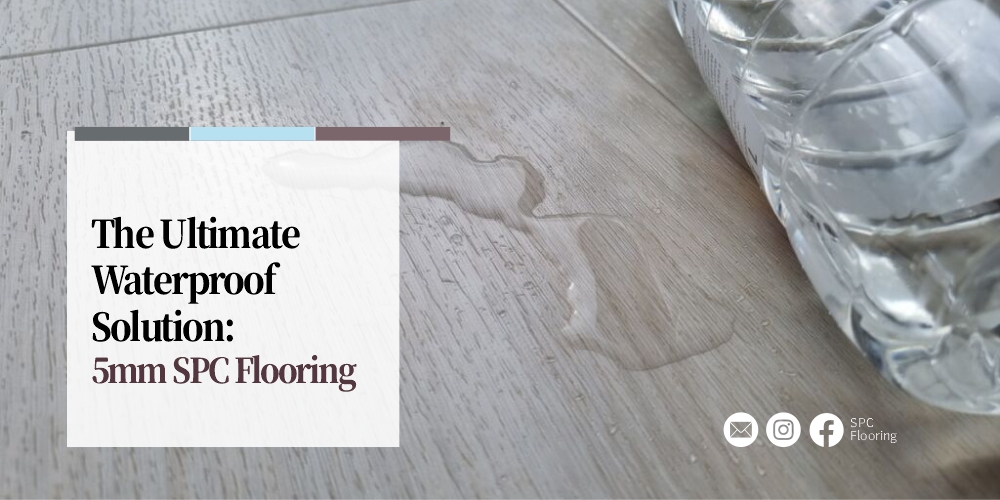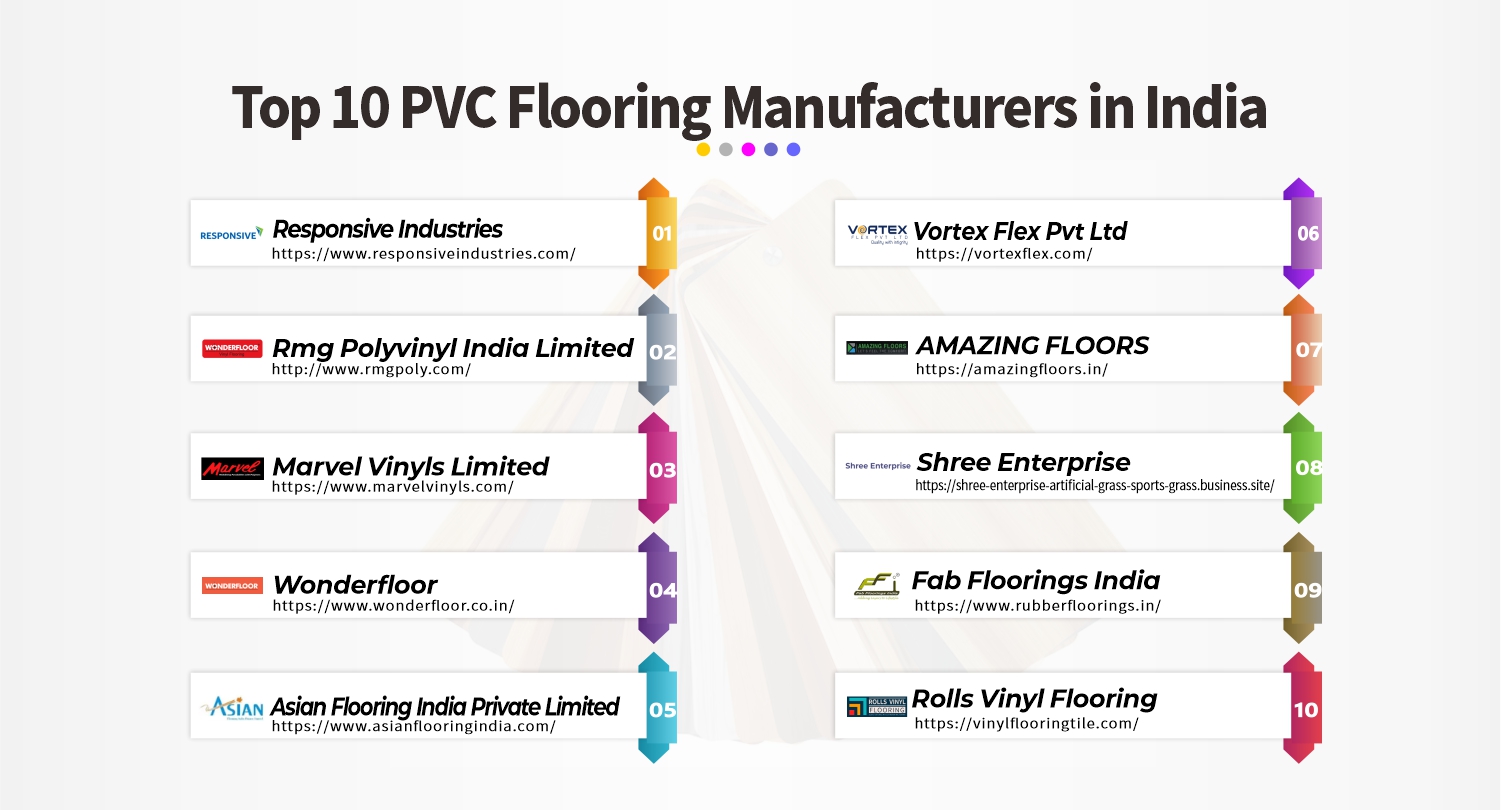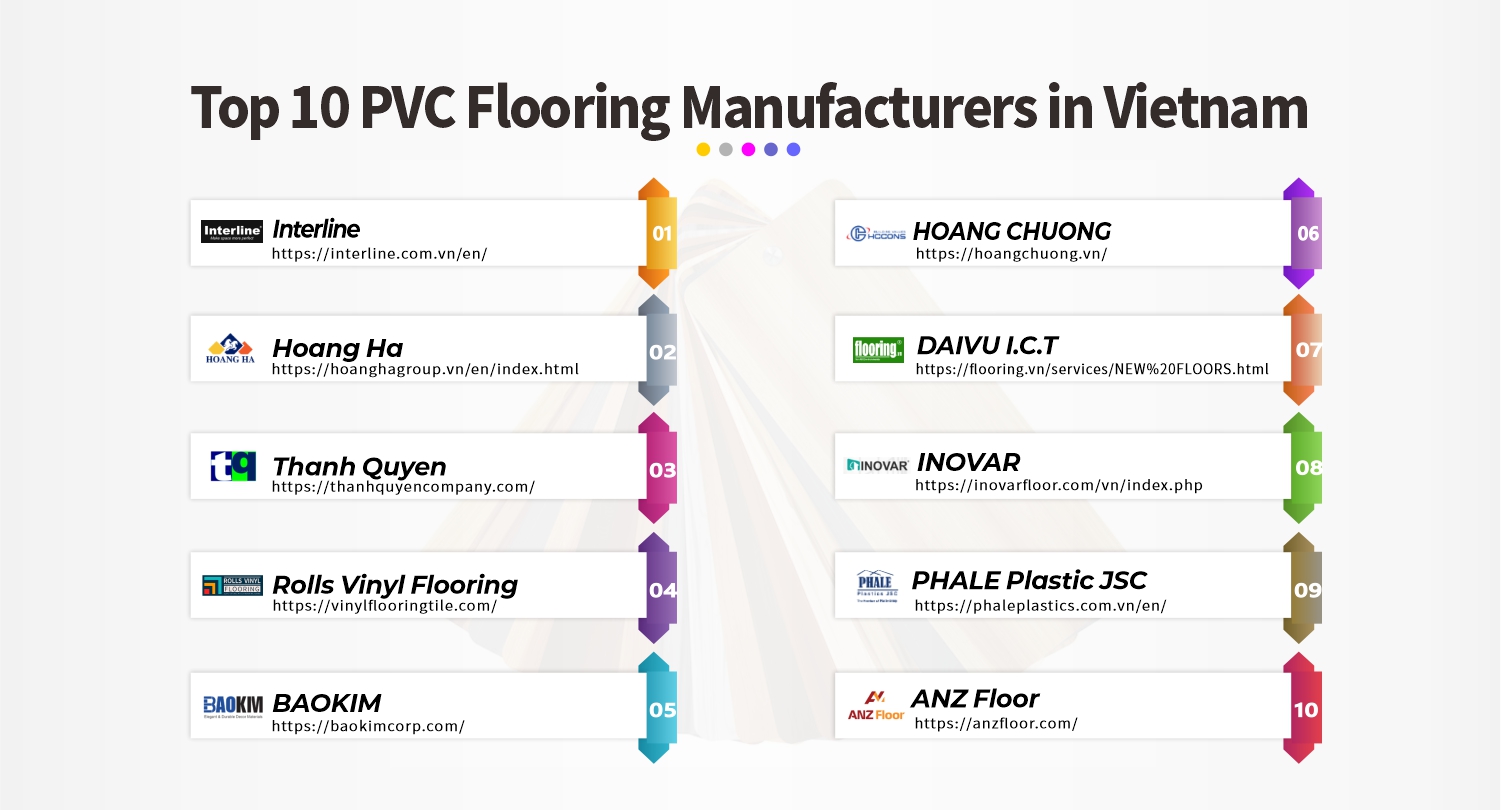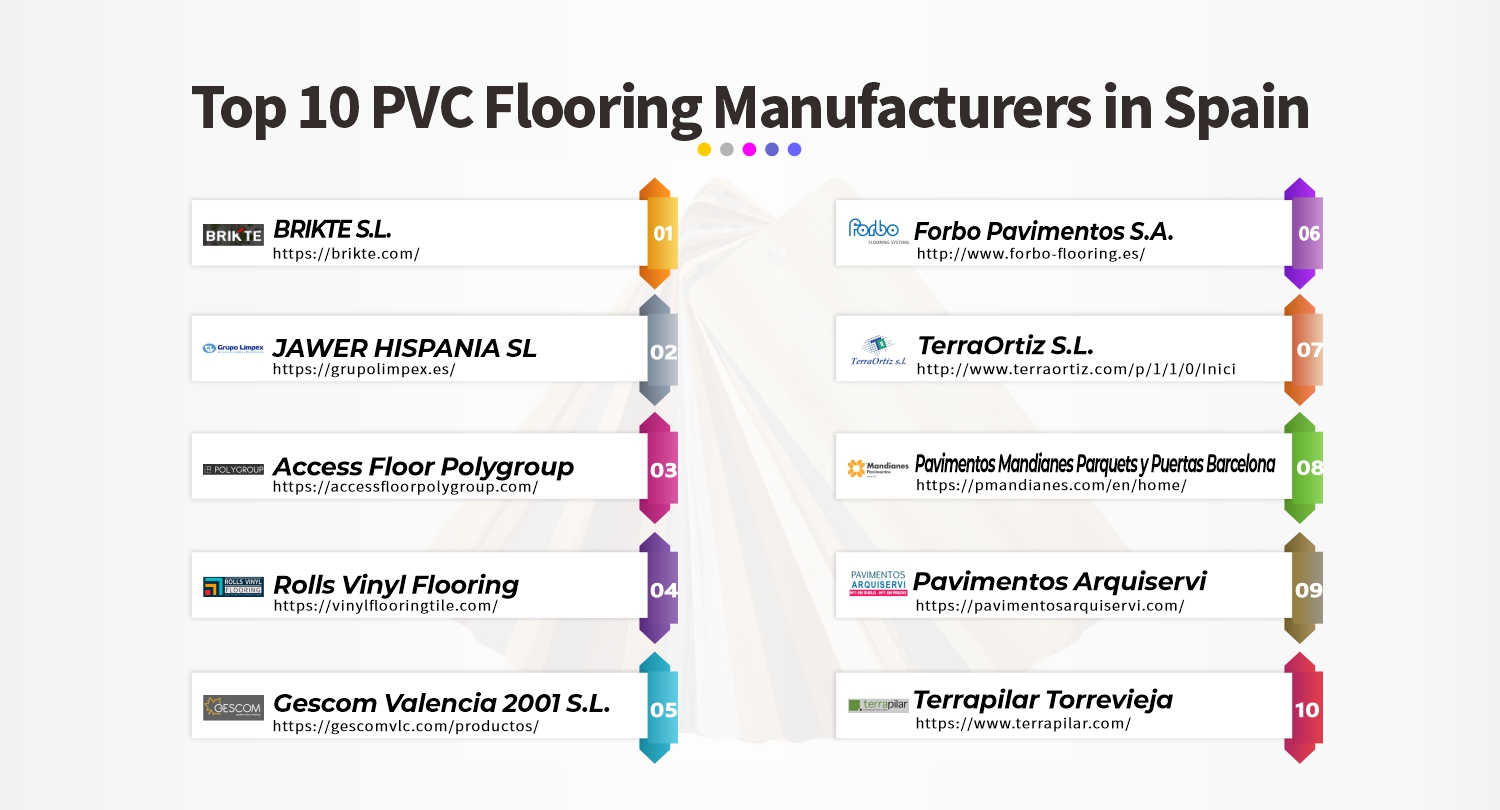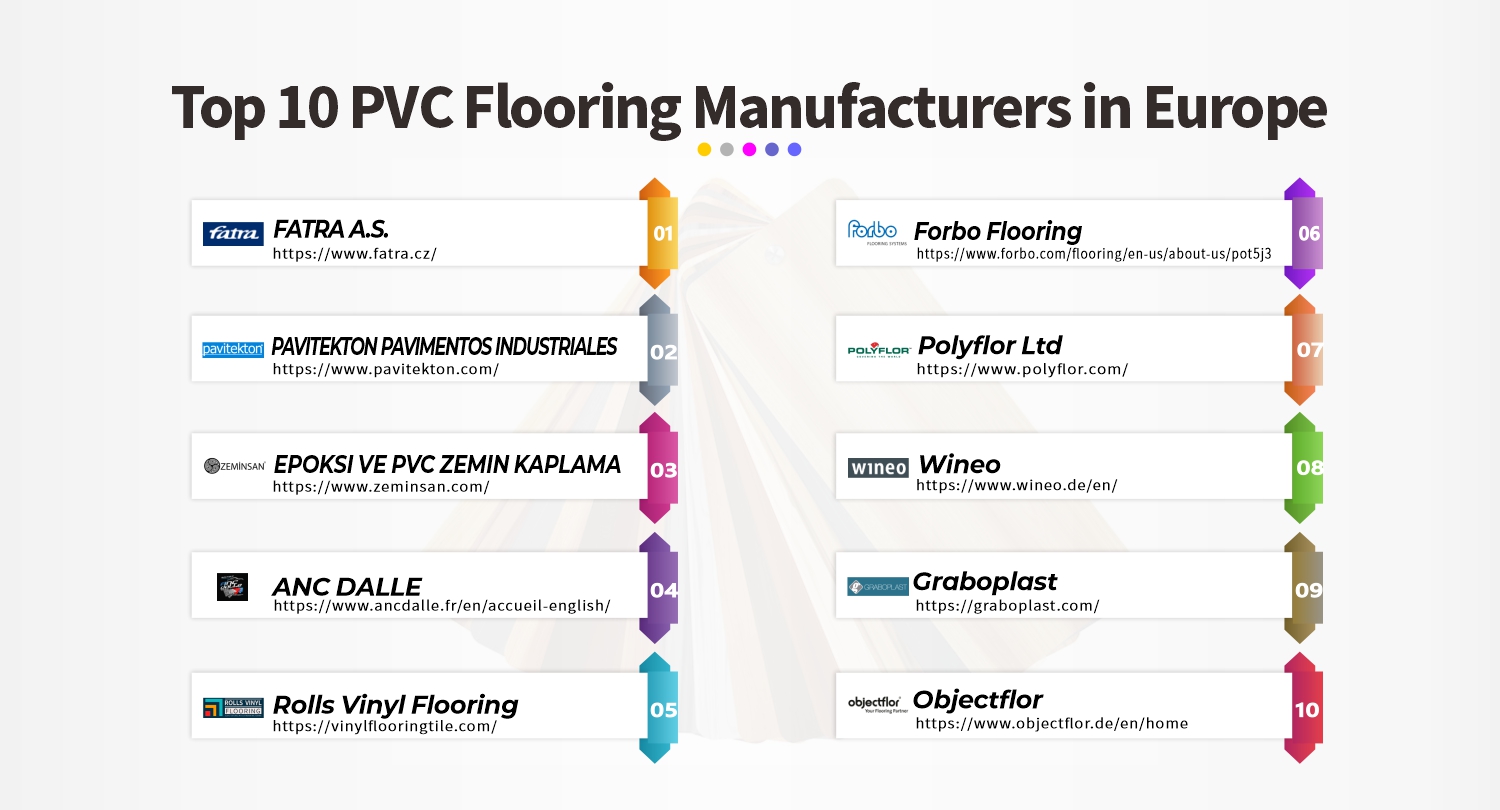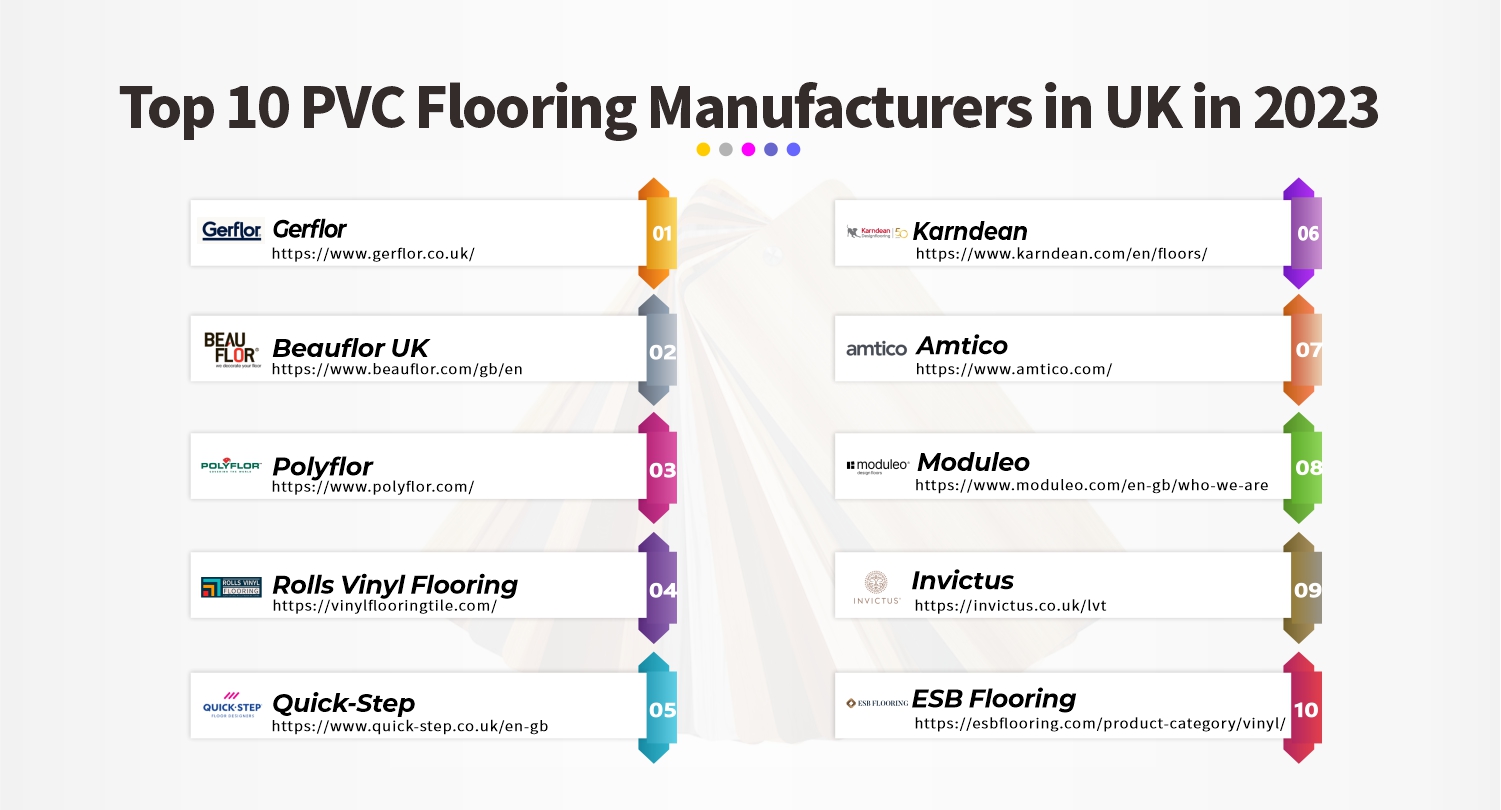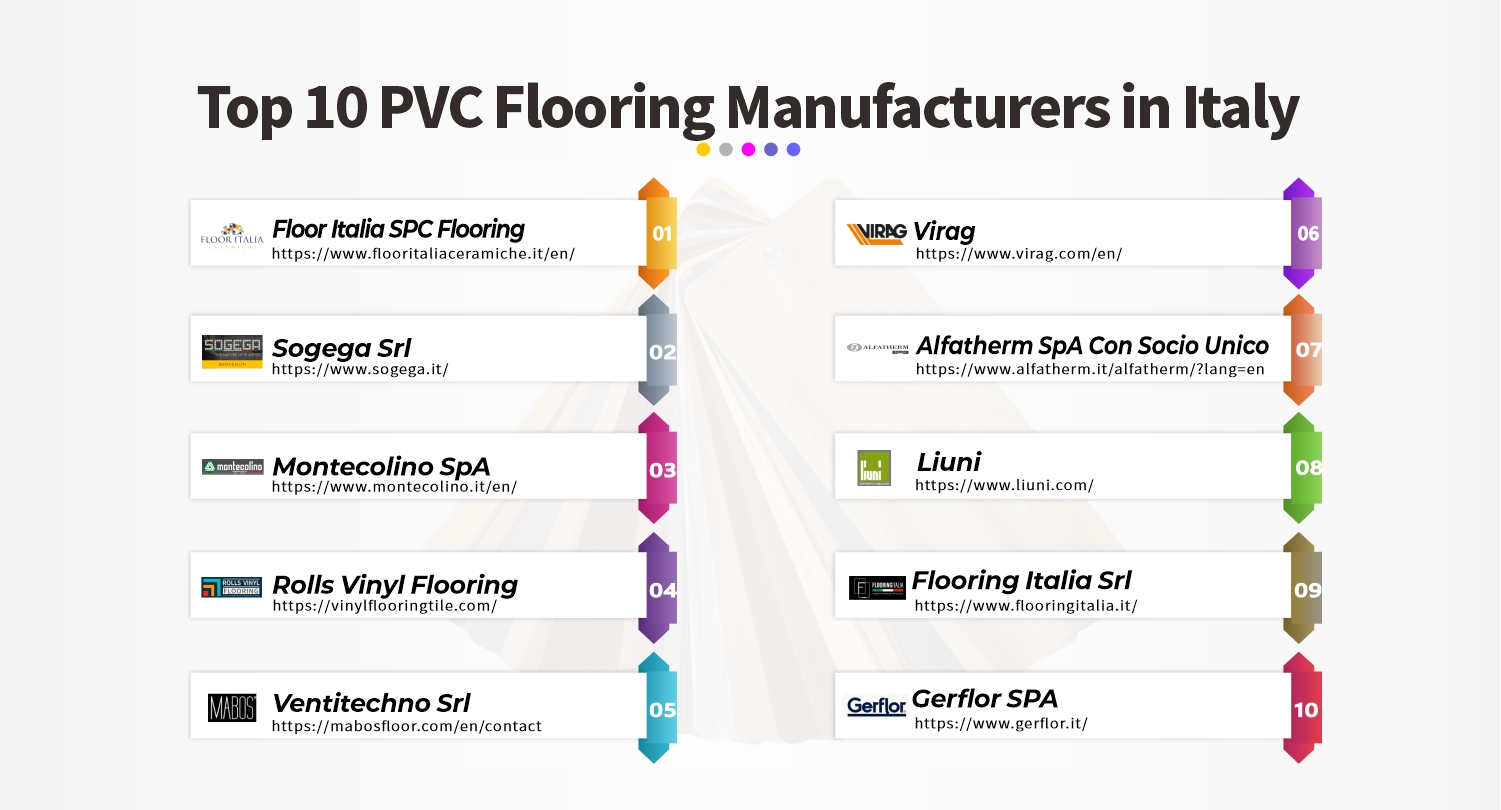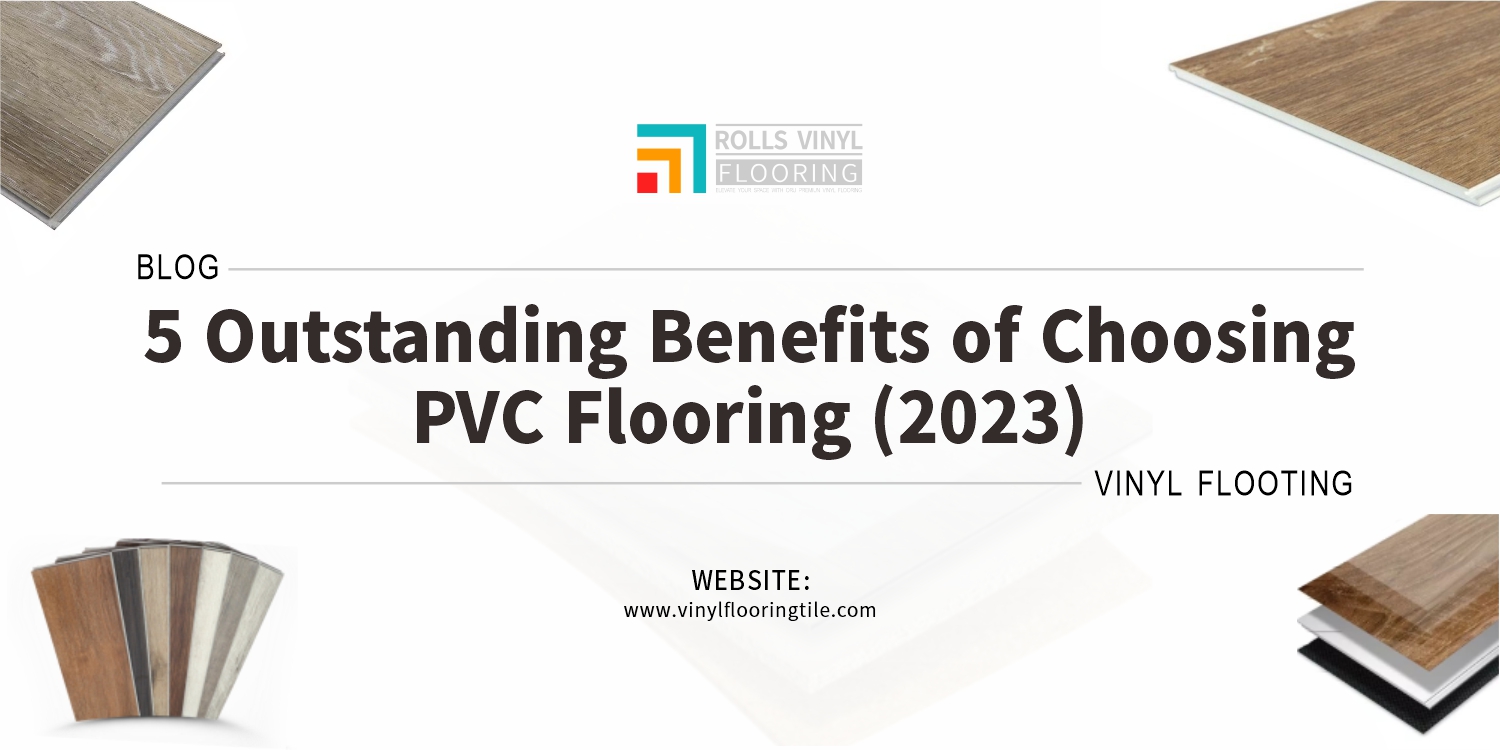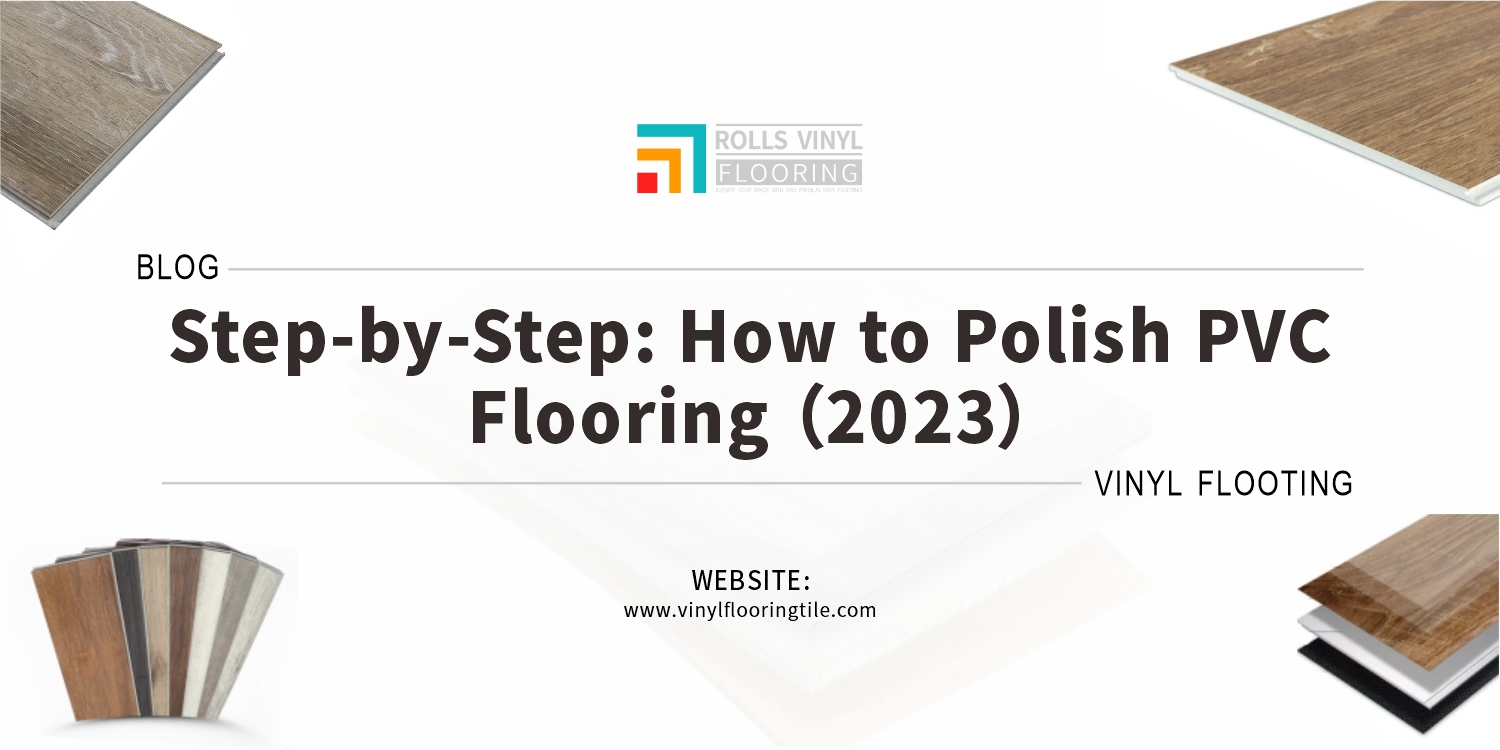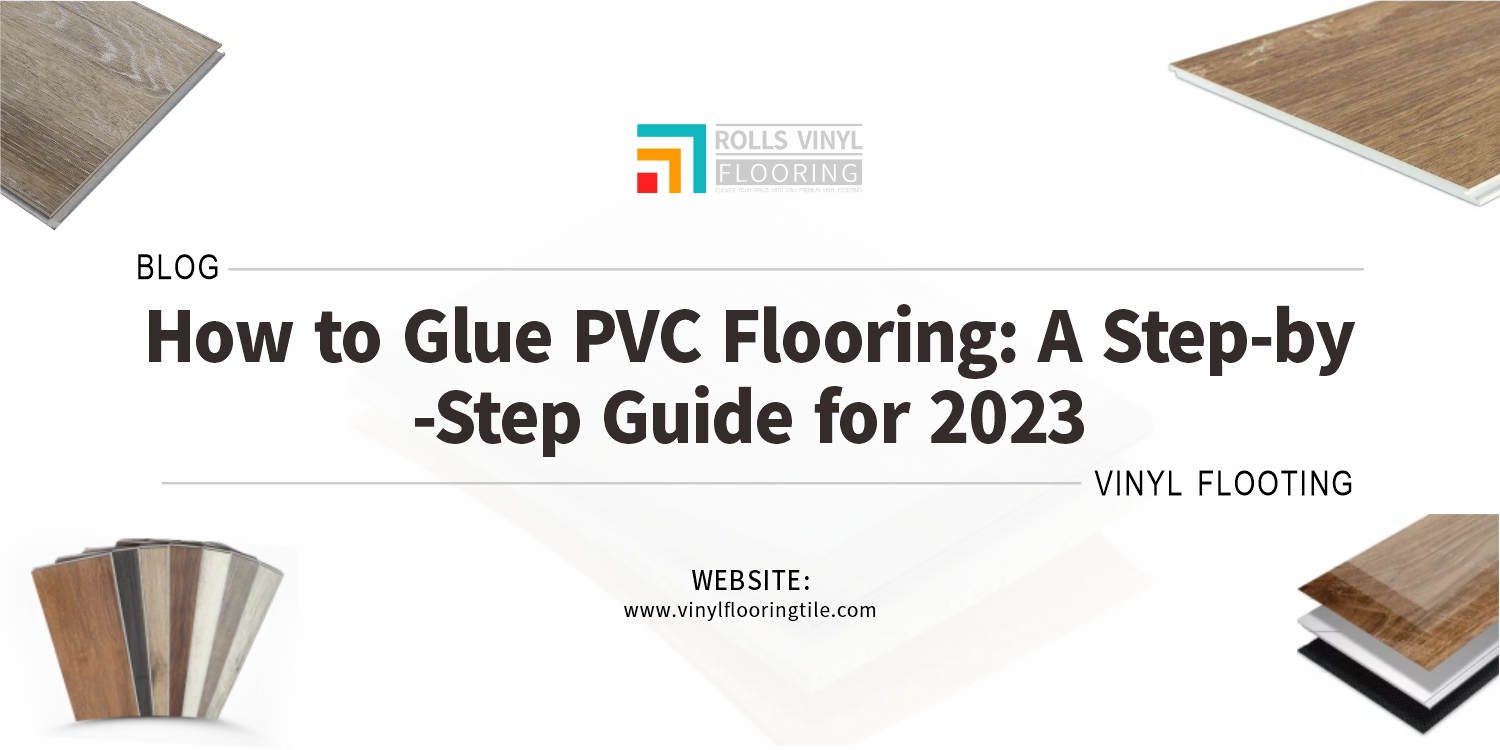Are you looking for a waterproof flooring solution that is durable and easy to maintain? Look no further than 5mm SPC Flooring. With its water-resistant properties and rigid core construction, 5mm SPC flooring is the perfect choice for high-moisture areas in your home or business. 5mm SPC flooring is quickly becoming one of the most popular flooring options on the market today, thanks to its many benefits.
5mm SPC flooring is a rigid core flooring highly resistant to water and moisture. It comprises several layers, including a stone plastic composite (SPC) core and wear layers. The SPC core layer provides stability and durability, while the wear layer protects against scratches and wear. With its water-resistant properties, 5mm SPC flooring is perfect for use in high-moisture areas such as bathrooms, kitchens, and basements.

In this article, we’ll explore the many benefits of 5mm SPC flooring, including its durability, hygiene, and ease of maintenance. We’ll also discuss factors that affect its water resistance, testing methods, and maintenance tips to keep your 5mm SPC flooring looking and performing its best.
Definition of 5mm SPC Flooring:
5mm SPC flooring is a type of rigid core flooring that is made up of several layers. The core layer is made of stone plastic composite, a mixture of limestone and PVC. This core layer provides excellent stability and durability, making 5mm SPC flooring resistant to impact, scratches, and wear. On top of the core layer is a printed design layer that mimics the look of natural wood or stone. This layer is protected by a wear layer, a clear, UV-cured layer that provides additional protection against scratches, stains, and fading. Finally, there is an attached underlayment layer that helps to reduce noise and provide additional comfort underfoot.
Importance of Water Resistance in Flooring:
Water resistance is crucial when choosing flooring, especially in areas prone to moisture and spills, such as bathrooms, kitchens, and basements. Water can easily seep through the seams and gaps in the flooring, causing damage to the subfloor and promoting the growth of mold and mildew. This can lead to costly repairs and health hazards.
5mm SPC flooring is highly resistant to water and moisture thanks to its rigid core construction and attached underlayment layer. Unlike traditional hardwood flooring, 5mm SPC flooring will not swell or warp when exposed to water, making it a great choice for areas with high moisture levels. Additionally, 5mm SPC flooring is easy to clean and maintain, making it ideal for busy households with kids and pets.
Factors Affecting Water Resistance of 5mm SPC Flooring
Composition of the Flooring Material:
The composition of the flooring material is one of the most important factors that affect the water resistance of 5mm SPC flooring. As mentioned, 5mm SPC flooring comprises several layers, including a stone plastic composite (SPC) core and wear layers. The SPC core layer provides the flooring with its water-resistant properties, as it is made up of a mixture of limestone and PVC, both highly durable and water-resistant. The quality of the SPC core layer, as well as the thickness and density of the layer, can greatly affect the water resistance of the flooring.
Type of Surface Finish:
The type of surface finish on 5mm SPC flooring can also affect its water resistance. Some surface finishes, such as a high-gloss finish, may be more prone to showing water spots and stains, while others, such as a matte or textured finish, may be more forgiving. Additionally, certain surface finishes may be more prone to scratches and wear, which can compromise the water resistance of the flooring over time.
Quality of Installation:
The quality of installation is another important factor to consider regarding the water resistance of 5mm SPC flooring. Improper installation can result in gaps between the flooring planks or tiles, allowing water to seep through and damage the subfloor. It’s important to ensure that the flooring is installed correctly and that all seams are properly sealed to prevent water infiltration. Additionally, using a moisture barrier or underlayment can help further protect the flooring from water damage.

Water Resistance Testing Methods for 5mm SPC Flooring
Water Immersion Test:
The water immersion test is a common method used to test the water resistance of 5mm SPC flooring. This test submerges flooring samples in water for a specified period, typically 24 to 72 hours. After immersion, the samples are removed from the water and examined for any signs of swelling, warping, or other damage. This test is designed to simulate real-world conditions where the flooring may be exposed to water or moisture for an extended period.
Wet Static Coefficient of Friction Test:
The wet static coefficient of friction test is another method used to test the water resistance of 5mm SPC flooring. In this test, a flooring sample is wetted and then tested for slip resistance using a device that measures the coefficient of friction between the flooring and a test surface. The test is designed to simulate conditions where the flooring may be wet or slippery, such as in a bathroom or kitchen. The higher the coefficient of friction, the less likely the flooring is to become slippery and cause a slip or fall.
Water Vapor Transmission Rate Test:
The water vapor transmission rate (WVTR) test is a third method used to test the water resistance of 5mm SPC flooring. In this test, a flooring sample is placed in a controlled environment where the temperature and humidity are carefully controlled. The sample is then exposed to a known amount of water vapor, and the rate at which the water vapor passes through the flooring is measured. This test is designed to simulate conditions where the flooring may be exposed to moisture in water vapor, such as in a basement or crawl space.
Benefits of Water Resistance in 5mm SPC Flooring:
Durability:
One of the main benefits of water resistance in 5mm SPC flooring is its durability. SPC flooring is designed to be highly resistant to scratches, impacts, and wear and tear, making it a long-lasting option for residential and commercial settings. The water-resistant properties of 5mm SPC flooring also make it less susceptible to damage from moisture, which can be a common problem with other flooring materials such as hardwood or laminate. This means that 5mm SPC flooring can withstand heavy foot traffic, spills, and other daily wear and tear forms without showing signs of damage or wear.
Hygiene and Ease of Maintenance:
Another benefit of water resistance in 5mm SPC flooring is its hygiene and ease of maintenance. Because the flooring is resistant to water and moisture, it is less likely to harbor mold, mildew, and other types of bacteria that can thrive in damp environments. Additionally, 5mm SPC flooring is easy to clean and maintain, as spills and stains can be quickly wiped away without leaving any residue or damage to the flooring surface. This makes 5mm SPC flooring a great choice for homes and businesses prioritizing cleanliness and hygiene.
Protection Against Water Damage:
Perhaps the most important benefit of water resistance in 5mm SPC flooring is its protection against water damage. Water damage can be a costly and time-consuming problem to deal with, as it can warp and damage subfloors, walls, and other structures in a building. With 5mm SPC flooring, you can have peace of mind knowing that your flooring is highly resistant to water and moisture, which can prevent damage to your property and reduce the need for costly repairs. This makes 5mm SPC flooring a smart choice for areas of your home or business prone to moisture or water exposure, such as bathrooms, kitchens, and basements.
Maintenance and Care Tips for Water-resistant 5mm SPC Flooring:
Regular Cleaning and Maintenance:
To keep your water-resistant 5mm SPC flooring looking and performing its best, it’s important to establish a regular cleaning and maintenance routine. This should include sweeping or vacuuming the flooring regularly to remove dirt and debris and wiping up spills or stains as soon as they occur to prevent them from setting into the flooring. Using rugs or mats in high-traffic areas is also a good idea to reduce wear and tear on the flooring surface.
Use of Proper Cleaning Products and Techniques:
When cleaning 5mm SPC flooring, it’s important to use the right products and techniques to avoid damaging the flooring surface. Avoid harsh chemicals or abrasive cleaning tools, as these can scratch or damage the finish of the flooring. Instead, use a pH-neutral cleaner and a soft mop or cloth to clean the flooring surface. You can also use a damp or steam mop for deeper cleaning but avoid using excessive water or steam that can damage the flooring.
Prevention of Water Damage:
While 5mm SPC flooring is highly resistant to water and moisture, it’s still important to take steps to prevent water damage. This includes wiping up spills or leaks when they occur, using mats or rugs in high-moisture areas such as bathrooms and kitchens, and avoiding leaving standing water on the flooring surface. Additionally, maintain proper humidity levels in your home or business to prevent excessive moisture buildup that can damage the flooring over time.

In conclusion, 5mm SPC flooring is the ultimate waterproof solution for your flooring needs. Its water-resistant properties, durability, and ease of maintenance offer numerous benefits for both residential and commercial settings. Whether you’re looking for a flooring option for your bathroom, kitchen, or basement, 5mm SPC flooring is the perfect choice.

